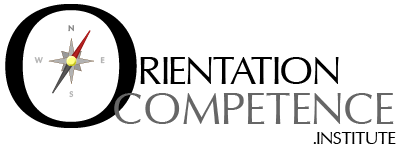The Evolution of “Social and Impact Entrepreneurship in an international perspective” – A snapshot
As the course content of “Social and Impact Entrepreneurship in an international perspective” at vircamp seems to have changed in 2025 without consultation with the original developers, we present here a snapshot of the curriculum and the structure when the original course developers and designers Harald Bolsinger & Winfried Weber were still in charge as head teachers , to deliver the relevant sources for future publications about the course and its role in developing the 8i-didactics.
First CURRICULUM PLAN of the Authors 2021: Curriculum-plan_Social-Impact-Entrepreneurship_(SIE)–202102
Last CURRICULUM PLAN of the Authors 2024: Curriculum-plan_Social-Impact-Entrepreneurship_(SIE)–202409
| Social & Impact Entrepreneurship – VIRCAMPCourse – Status of 09/2021 Bolsinger | |
| Didactical Framework Phase | Main Content |
| Phase 1: How to get started | Introduction to the course – how to be an e-learning student; the need for social innovation and social start-up; students’ work plans and learning outcomes Starting a parallel process in a group of 4-6 in a Working Out Loud Group. |
| Phase 2: Express Yourself | Step 1: Who am I? Describe yourself: Age, Profession/s, How do I live (with whom, where), what I like to do, what I don’t like. Step 2: Express myself with 5 symbols, Personal Still Life |
| Phase 3.1: Learning from Social Start-ups – Case Studies | X case studies – Students can choose for themselves, what case study they want to work on => short presentation, of their core findings/inspiration in the plenary group or in a self reflection paper. |
| Phase 3.2: Inspiration & Calling – Personal Vision | Finding out about individual wishes & values. Understanding purpose & vision. First steps to development of a personal vision together with others (using the Working Out Loud Group). |
| Phase 4: Ideation and Reframing – student’s raw ideas | Design thinking approach, creativity techniques, … applied! Core: Getting an idea and sharpening it. Optional individual coaching by teachers. |
| Design thinking approach, creativity techniques, … application processes. Core: Getting an idea and sharpening it. Booking an individual coaching with teacher. |
|
| Individual coaching by Professors (as an option for students) – “socratic questions”, giving much leeway to students Approach: more inductive, application orientated |
|
| Phase 5: Team Building & Connection to SDGs | A Team Dry Run – one of the 17 UN Goals with teams of 6-8 from 3 countries. Result – a joint pitch deck – 1 minute video Break out of the individual raw idea, connect your vision to specific SDGs => Finding out how to connect the raw ideas in a sense of sustainability.. |
| Phase 6: Sustainability & Measurements: Impact Orientation and Impact Analysis | Exploring possible definitions and operationalizations of sustainability, connecting them to the individual vision and get a feeling of proper measurements for the aspired impact. |
| Phase 7.1 Inspiring others: Preparing a public speech | How to present an inspiring pitch deck (Basics of Storytelling, Do’s and Don’ts) integrating results and experiences with the WOL-group. |
| Phase 7.2: From Raw to Fast Prototyping | Developing a first particular solution idea for the social problem, to be tested in real life. |
| Phase 8: Grading | Video Pitch Deck |
| FOLLOW UP | Implementing a sustainable self-runner to make the world a better place |
| Phase 9: COACHING/ MENTORING | Present and discuss results of the first course: What can be developed further? |
| Phase 10: Solutions & Validation (LEAN) – 4 Weeks | Producing minimum viable products/services and solutions to test the success potential in aspects of impact and profitability at the same time. Internalization of a lean and practice oriented development process. |
| Phase 11: Business model & Launch (STARTUP) – 2 weeks | Transfer of potential working solutions from phase 6 into profitable businesses by exploring real implementation and founding options. |
| Phase 12: Bring solution to action (NETWORKING/ PARTNERS) | Building and opening up individual networks for the real implementation of promising ventures. Search for the right partners and potential teaming of students for joint implementation. |
